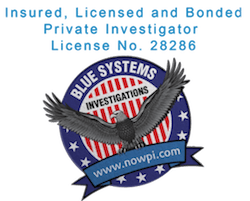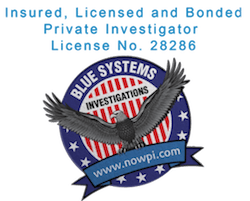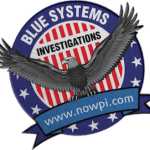Latest Blog Posts
August 15, 2019
August 15, 2019
August 15, 2019
Follow us on Facebook
Certification
CA Private Investigator
License No. 28286
PI Services
Locations Served
Client Intake Forms
Comprehensive Guide to Orange County Background Checks: Laws, Best Practices, and Compliance
Get a Background Check Done Locally in Orange County | Learn About Orange County Background Checks

Background checks are crucial for employers and individuals in Orange County, California. Private Investigators ensure they're informed decisions while maintaining safety and trust. With legal requirements unique to the region, understanding how to navigate compliance is vital.
Whether conducted through an online background check service or a professional background screening agency. Directly requesting a criminal history record, these checks provide valuable insights. Public records and criminal history background checks. Often requested via mail or through a checker bureau, reveal critical details about potential hires or personal associations.
The best background check methods balance thoroughness and adherence to Orange County’s specific regulations. This blog post will explore everything you need about Orange County background checks, including the legal framework. The best background screening practices are efficiently requesting a criminal history record while staying compliant.
Why Background Checks Are Crucial in Orange County?
Background checks are crucial in Orange County to ensure workplace safety, foster trust, and avoid negligent hiring practices. Employers can verify licenses and review bankruptcy records by obtaining a detailed background report. Assess fingerprint-based background information to make informed decisions.
Compliance with state and local laws is essential, as failing to adhere to them can lead to legal complications. Understanding someone's history is key whether you're looking to hire or need a background check for personal reasons. Ensure to check all relevant details and, when submitting requests, include a check or money order to streamline the process effectively.
Types of Background Checks Conducted in Orange County
Background checks are vital for ensuring trust and safety in various industries throughout Orange County. Employers and individuals rely on these checks to assess criminal records, verify employment and education, and even evaluate creditworthiness.
Each type serves a specific purpose and helps make well-informed decisions while adhering to the Fair Credit Reporting Act and local regulations. Below, we delve into the most common types of background checks conducted in Orange County, explaining their uses and benefits.
1. Criminal Background Checks
Criminal background checks examine state criminal and arrest records, covering felonies, misdemeanors, and other offenses. They use court records to determine whether a record is found. The 7-year rule limits some public information, like older convictions. Platforms like Checkr or GoodHire provide easy-to-use online tools for such checks.
2. Employment Verification
Validating work history and job titles is critical to employment background checks. These checks help ensure applicants have accurately portrayed their experience. Alias searches and contact with past employers can provide additional details about performance and tenure.
3. Education Verification
Confirming degrees, certifications, and other qualifications ensures candidates meet job requirements. Access to the portal for academic institutions and the use of official documents simplifies verification.
4. Credit Checks
Credit checks assess financial responsibility and are often used for positions involving money management or sensitive data. These checks require consent under the Fair Credit Reporting Act and typically involve judgment, bankruptcy, and lawsuit records.
5. Driving Records Checks
For roles requiring transportation or a motor vehicle permit, driving records offer insight into traffic violations, DUIs, and more. Registered users can access this information online for convenience.
6. Reference Checks
Speaking with previous employers or personal references provides insights into character and work ethic. Make sure to check references thoroughly to avoid potential discrepancies.
Important Laws and Regulations for 2025
As California heads into 2025, employers must navigate a complex landscape of laws regulating background checks. These include federal statutes like the Fair Credit Reporting Act (FCRA) and state-specific regulations.
Such as the Investigative Consumer Reporting Agencies Act (ICRAA), Consumer Credit Reporting Agencies Act (CCRAA), and recent amendments under the Fair Chance Act (FCA). Employers must ensure compliance across these jurisdictions to avoid penalties and maintain fair hiring practices.
Key Federal and State Laws
- Fair Credit Reporting Act (FCRA): The FCRA mandates employers to notify applicants in writing if a background check is required, secure authorization, and disclose adverse decisions based on report findings. It ensures transparency by allowing applicants to dispute inaccuracies within 30 days. However, FCRA provisions do not apply when employers conduct internal background investigations without third-party involvement.
- ICRAA and CCRAA: These California-specific laws impose stricter rules than the FCRA, including a
seven-year lookback rule prohibiting consumer reporting agencies from including convictions older than seven years unless related to public safety roles. Credit reports, categorized as “background reports” under CCRAA, must be furnished to applicants at no cost, with contact information provided in a clear, conspicuous format for the reporting agency.
- California Fair Chance Act (FCA): Updated regulations emphasize pre-offer privacy by barring criminal history inquiries before conditional job offers. Employers using fingerprints or other advanced methods to filter data sources must provide detailed written assessments if they deny employment based on criminal history. Notices must outline the nature of the background check and the role’s requirements and include a toll-free contact option for queries.
- Redaction of Personal Identifiers: The decision in All of Us or None of Us v. Hamrick mandates redaction of birthdates and other identifiers in court records, complicating background checks. Employers should leverage tools like PDF reports and filter data sources to ensure compliance.
Legal Considerations for Background Checks in Orange County
Conducting background checks in Orange County requires navigating complex state laws and local ordinances to ensure compliance. Employers must adhere to regulations such as California’s Fair Chance Act. Which restricts inquiries into criminal history before making conditional job offers.
Additional rules apply in cities like Los Angeles and San Francisco, further complicating the process. Understanding these laws and their exceptions is vital for safeguarding your hiring process while respecting the rights of job applicants.
Here's what you need to know:
- California Fair Chance Act ("Ban the Box"): State laws prohibit employers from asking job applicants about their criminal history until a conditional job offer is made, helping prospective candidates avoid discrimination.
- Local Ordinances: Los Angeles and San Francisco enforce stricter rules, requiring individualized assessments of criminal records based on factors like the type of checks conducted and the job’s requirements.
- Exceptions for Certain Industries: For safety reasons, the legal allowances for retrieving criminal history in healthcare, child care, and other regulated fields may vary.
- California Clean Slate Laws: These laws automate the expungement of eligible criminal records, impacting background checks by removing certain offenses from public records.
- Compliance Details: Employers must retrieve information like the date of birth or social security number for accurate checks, often completed online. Using a user account or reference number ensures reports align with state laws.
Best Practices for Conducting Background Checks in Orange County
Conducting thorough and legally compliant background checks is crucial for maintaining a trustworthy workplace while safeguarding your organization against legal risks. Employers in Orange County must navigate California's specific employment laws, emphasizing fair treatment and privacy. Adopting best practices ensures a seamless process that respects candidates and secures reliable hires.
1. Develop a Comprehensive Policy
A clear, well-defined background check policy is the foundation for compliance and consistency. Start by outlining the necessary checks for specific roles, such as criminal history, education verification, or credit reports.
Ensure the policy aligns with California laws, like the Fair Chance Act, which limits inquiries about criminal history. Include procedures for obtaining consent and provide candidates with adverse action notices when applicable.
2. Train HR Staff
Equip HR staff with robust training on federal, state, and local regulations governing background checks. Highlight requirements like the "Ban the Box" initiative, which delays criminal history inquiries until later hiring stages. Empower your team to apply the policy fairly while safeguarding candidate rights.
3. Partner with Reputable Background Check Providers
Select a screening partner that prioritizes compliance, accuracy, and timeliness. Look for providers accredited by the Professional Background Screening Association (PBSA) and those offering customizable solutions tailored to Orange County’s regulatory landscape.
4. Individualized Assessments
When evaluating criminal records, avoid blanket exclusions. Instead, assess each case individually, considering the nature of the offense, its relevance to job duties, and the time elapsed. This approach ensures fairness while mitigating liability.
How to Stay Compliant with Orange County Background Check Laws?
To stay compliant, employers in Orange County must follow local, state, and federal regulations regarding background checks. Key steps include delaying criminal history inquiries, securing written consent, providing notice for adverse actions. And maintaining proper documentation to ensure fairness and transparency in hiring processes.
Key Points to Stay Compliant
- Delay Inquiries About Criminal History: Avoid asking about criminal history until after making a conditional job offer. This ensures you comply with "ban-the-box" laws, which aim to reduce bias during the hiring process.
- Provide Clear Notice and Obtain Written Consent: Inform applicants about the background check process and secure written consent before conducting the check. Transparency fosters trust and fulfills legal requirements under the Fair Credit Reporting Act (FCRA).
- Notify Applicants of Adverse Actions: If you decide against hiring based on the background check, provide the applicant with a notice, including a copy of the report and an opportunity to respond or correct inaccuracies.
- Maintain Proper Documentation: Keep records of all consent forms, notices, and decisions related to background checks. This safeguards your company against potential disputes or audits.
Conclusion
Conducting thorough and compliant background checks in Orange County is essential for maintaining fairness, transparency, and trust in the hiring process. Adhering to legal requirements protects businesses from costly legal repercussions and demonstrates a commitment to ethical hiring practices.
Employers can build a stronger, more equitable workforce by delaying criminal history inquiries, securing written consent, notifying applicants of adverse actions, and maintaining proper documentation. Prioritizing compliance isn’t just a legal necessity. It’s an investment in a company’s reputation and future success. Embrace these best practices to ensure a responsible and lawful approach to hiring.
Frequently Asked Questions
How far back do background checks go in Orange County?
Under California law, background checks in Orange County typically go back seven years for criminal convictions. However, some roles, like those in finance or healthcare, may legally require deeper investigations based on the position's sensitivity and responsibilities.
Can employers consider dismissed or sealed records?
No, California law prohibits employers from considering dismissed, sealed, or expunged records during hiring. Such information cannot be used to make employment decisions, ensuring privacy and fairness for applicants.
What is the turnaround time for a background check?
The turnaround time for background checks in Orange County varies from 1 to 5 business days. Factors like the complexity of the search or manual record reviews may extend this timeframe.
How do local laws impact employment screening processes?
Local laws, including Orange County's adherence to "ban-the-box" and anti-discrimination policies, restrict when and how employers can inquire about criminal histories, ensuring fair opportunities for all applicants.
Are drug tests part of background checks in Orange County?
Drug tests are not automatically part of a standard background check. However, employers may conduct them separately if the job involves safety-sensitive roles, provided they follow applicable state and federal guidelines.










